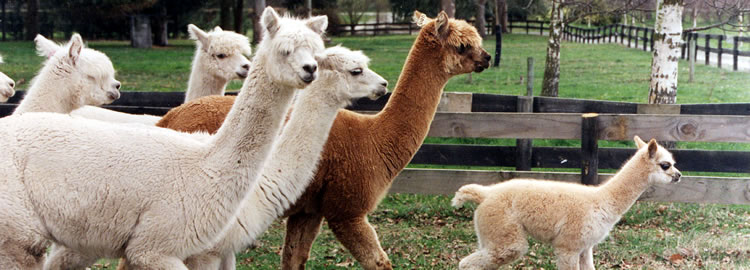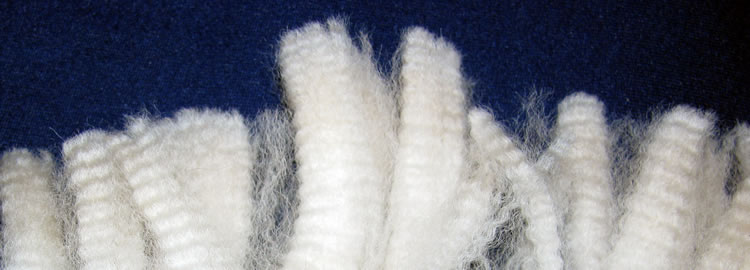Unlike ostriches, angora goats and other exotic animals, there can be no mass production of babies or ‘cria’. The technical difficulties of artificial insemination and embryo transplant in alpacas due to their unique reproductive systems, make it highly unlikely that these breeding techniques will have any impact on the alpaca market in the foreseeable future.
- The high value of the female cria often leads to breeders retaining their offspring.
- Alpacas reproduce slowly – one cria every 14-15 months (11.5 months gestation)
- With small national herds worldwide, there will be restraint on growth for some time.
- The US alpaca register is closed to further importation from any country.
- The Peruvian government has placed a ban on exports of alpacas from that country.
- Alpacas are now part of the show ring scene in many centres in NZ. The publicity and show competition will stimulate the market.
- NZ is one of very countries pemitted to export direct to the EU and the UK.
- Alpacas appeal to a wide range of lifestyles. From young couples with children wanting pets, lifestyle block owners looking for something exotic to marvel at and keep the grass down through to retired couples wanting to invest their savings in something requiring limited care but a lot of satisfaction.
- Alpaca garments are increasingly finding their way into the retail trade of NZ – the public and visitors are more aware of the fantastic qualities of alpaca fibre.
Demand from the fashion houses of Europe and the UK can only increase as the public becomes more aware of the magnificent qualities of this wonderful fibre .






